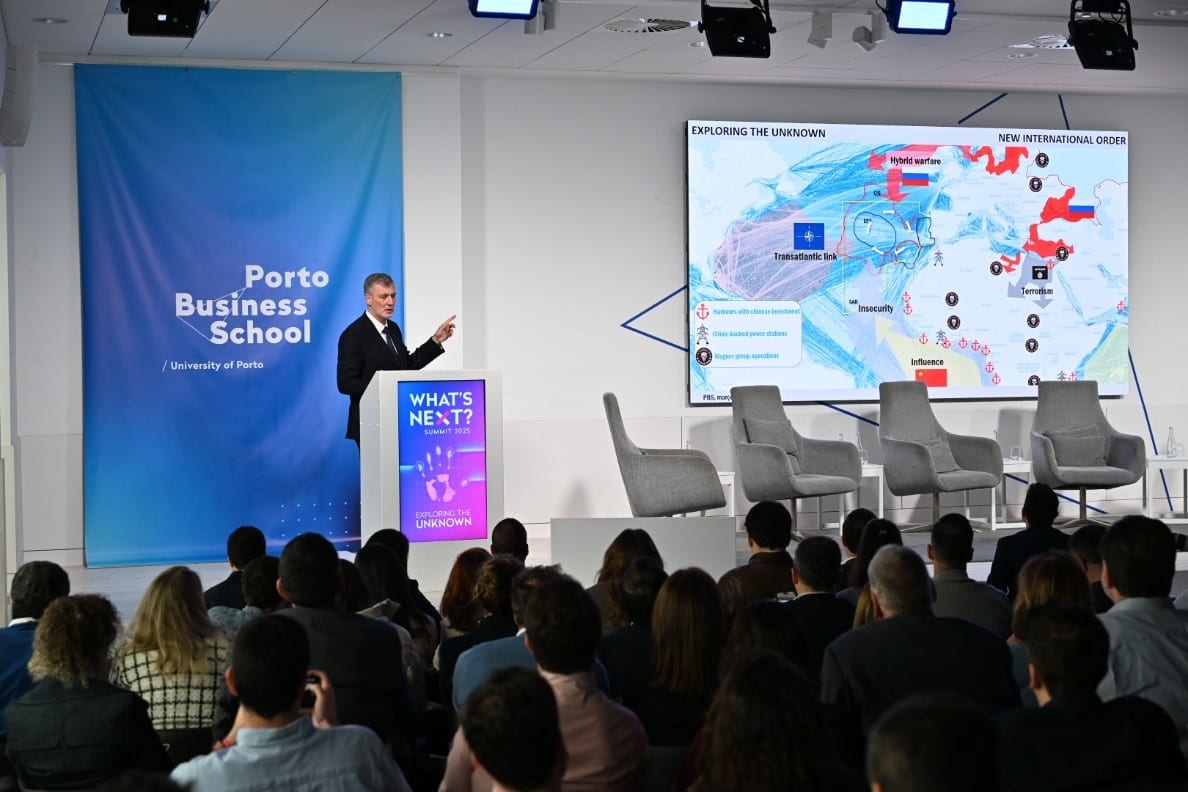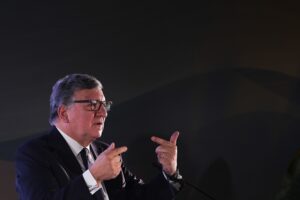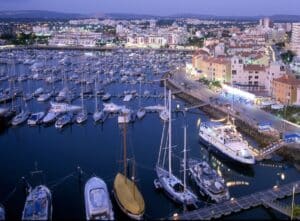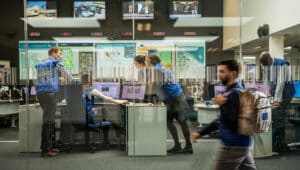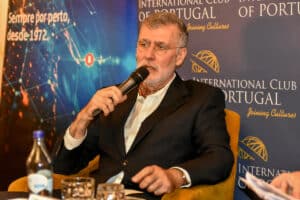Gouveia e Melo highlights role of robotics in safeguarding maritime territory
Just as Portugal’s moratorium on deep sea mining until 2050 becomes official, Admiral Gouveia e Melo – the man tipped to become Portugal’s next president – has delivered a speech on the role of robotics in marine exploration, emphasising their impact on ocean sustainability and maritime safety.
Gouveia e Melo was one of the highlights of the What’s Next Summit 2025, organised by Porto Business School.
Focused on the future of technology, innovation and sustainability in business and society, the summit brought together business leaders, political decision-makers and global experts, addressing a variety of themes, such as the integration of AI in business, building resilient organisations and intersection between innovation and sustainability.
Gouveia e Melo was just one of the key speakers – an important reference considering his last role as Chief of Staff of the Navy where he oversaw sweeping modernisation on various levels.
Focusing on the role of robotics in securing Portugal’s maritime space, he referred to the extent of the country’s territorial waters: right now, they cover almost 51,000 sq kms, extending up to 12 nautical miles from the coast. Portugal’s Exclusive Economic Zone is also one of the largest in the world, covering around 1.7 million sq kms – and there is still that request, under consideration by the UN, to extend Portugal’s ‘continential shelf’ to take in a total of 4 million sq kms.
As such, there is a lot of sea bottom to protect – much of it traversed by undersea cables which have been attracting the interest of Russian ‘scientific vessels’.
With the slogan ‘Exploring the Unknown’, the summit was billed as providing “a space for strategic debate on emerging challenges”.
According to José Esteves, the Dean of Porto Business School, it was “an essential space (…) to explore new opportunities and reflect on the role of technology and innovation in building a more sustainable and resilient world”.
The presence of “recognised speakers with diverse and complementary experiences” allowed the gathering of valuable data and perspectives on the transformations underway in society and the business community.
Admiral Gouveia e Melo’s speech reinforced not only the importance of technology and innovation in ocean sustainability, but in global security – issues that are continuing to mark the international agenda.
As he pointed out, the Portuguese Navy “is leading the robotics protocols in NATO”, which in his opinion means that “Portuguese companies have a competitive advantage over other foreign companies”.
It did not take long for the theme to jump to the new challenges of the times, in which Gouveia e Melo believes technology will play a huge part in preparing and protecting Portugal.
The former admiral, still not yet officially a candidate for the president, recalled the Yalta Conference in 1945, in which the leaders of the UK, United States and Russia defined the post-war international order. “If we did a new Yalta today, who do you think would be at the meeting? Xi, Trump and Putin… are any of them democrats?” he quizzed.
“‘We are living through a profound change in the international order (…) We are worried about three major international players, with some autocratic tendencies, but we have to be careful not to wake up other players within Europe with their own history and culture (…) Don’t forget that the centre of Europe is technologically more developed and the €800 billion (in EU funding to invest in Defence) are going exactly to those countries. They don’t go to the periphery. The regional, economic and technological asymmetry will continue to increase,” he warned.
Thus “there is no option” but to increase funds channelled towards guaranteeing European security which means “investing in Defence”, ergo “investing in technology” which it turn “increases the productivity of the economy”.
And on the subject of technology/ innovation, news from America shows that many researchers are losing funding due to the new administration’s focus on reducing the deficit. A group of countries in Europe (not so far including Portugal) is already preparing to ‘reach out’ in the hope of attracting these brains to come and work on the other side of the Atlantic. ND
Source: Porto Business School/ Expresso/ Politico

